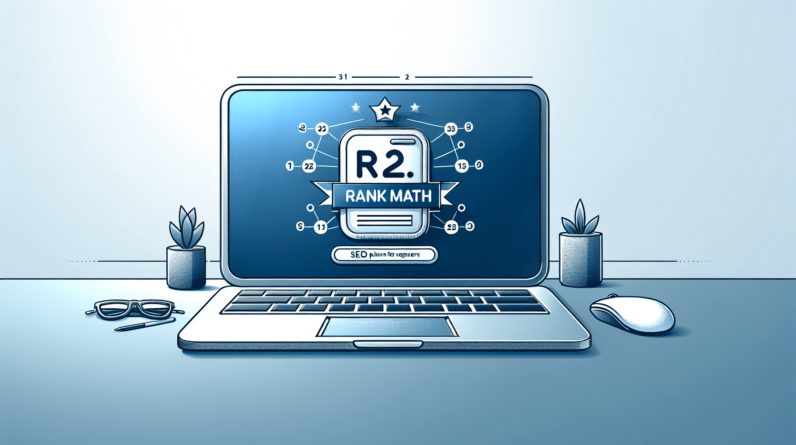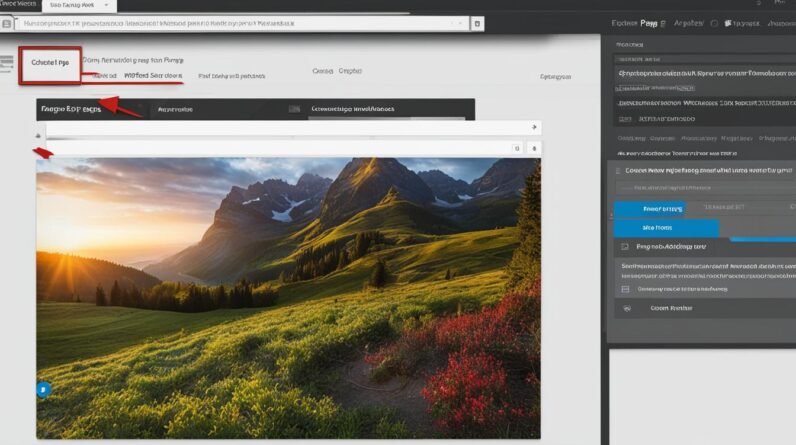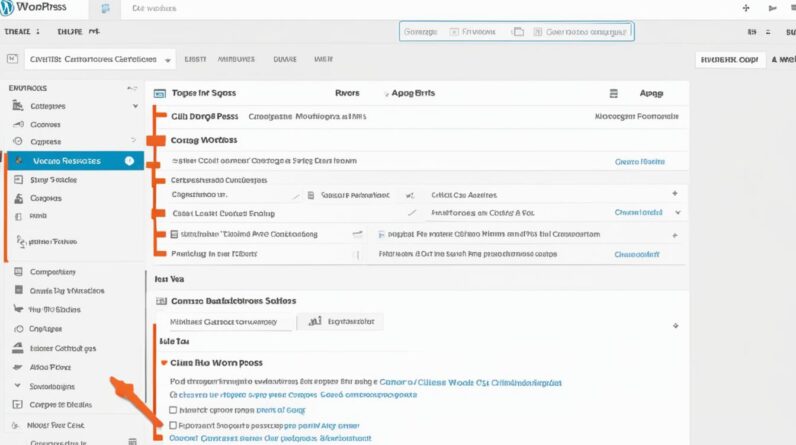As someone keen to dive into the digital world, I often encounter the question: how long does it take to learn WordPress? The allure of managing a website with ease and embracing the full spectrum of possibilities WordPress offers has drawn me, like many others, to explore this robust platform. From my experience, grasping the essentials of WordPress can be a swift undertaking, but achieving proficiency depends greatly on the depth and scope of your digital ambitions.
How to Make Money with YouTube
Create an empire of automated video websites for multiple streams of income
Whether you’re aiming to start a personal blog, a dynamic ecommerce site, or even develop custom themes and plugins, the WordPress learning time will vary. A fundamental acquaintance with computer operation could pave the way for setting up a basic WordPress site in mere hours. But to truly navigate the breadth of features and extend functionalities, you might find yourself on a learning path that stretches across months or even up to two years—particularly if coding elements like HTML and PHP are part of your toolkit. Ultimately, the journey is yours to tailor, and the learn WordPress duration is as flexible as the platform itself.
Key Takeaways
- Starting with WordPress can be quick, with fundamental skills learned in a few hours.
- To master intermediate features, expect to invest several months of learning.
- For advanced development skills, including coding, up to two years may be required.
- Your technical background will influence the duration of learning.
- WordPress’s versatility supports a personalized learning experience.
- Utilizing online resources can accelerate the learning process.
The Versatility and Power of WordPress
As someone who has spent considerable time navigating the digital realm, I’ve witnessed firsthand the remarkable adaptability and strength of WordPress as a content management system. Its extensive use across the globe isn’t just a statistic; it’s a testament to its flexibility and robust features that cater to a myriad of online pursuits—from blogging for pleasure to managing a burgeoning online store. My interactions with WordPress have shown me that regardless of your level of expertise or specific digital goals, it has something to offer for everyone, making the wordpress proficiency timeline as diverse as its user base.
WordPress Usage Statistics
Imagine a tool so powerful that it powers over two-fifths of the internet’s websites. That’s WordPress for you—an impressive figure that serves as a beacon for those like me, curious about the world of web development and design. The mastering wordpress time frame may vary, but it is this sheer prevalence that encourages a closer look into this influential platform and a commitment to understanding its vast potential.
What Is WordPress and Who Uses It?
In my journey of mastering WordPress, I’ve seen it evolve from a simple blogging platform to a multifaceted tool that serves as the backbone for sites ranging from small personal blogs to large-scale ecommerce enterprises. The inclusivity of WordPress is one of its strongest suits; by being an open-source software, it invites users with all levels of technical skill to create and flourish online. The wordpress proficiency timeline is a flexible path that encourages a plethora of users to engage with it, thus broadening the scope of who can make their mark on the internet.
What Can You Do with WordPress?
My journey with WordPress began as a quest for an efficient platform that could launch a blog within minutes. Little did I know at the time, I would soon be able to master WordPress and use it to create dynamic ecommerce sites with rich functionality. As an advocate for efficient WordPress learning, I’m excited to share how, in a short time, WordPress can be harnessed to build a variety of impressive web projects.
From Simple Blogs to Ecommerce
The initial allure of WordPress for me was certainly its simplicity. With minimal technical know-how, I managed to set up a personal blog. But then, my ambitions grew, and so did my use of WordPress. It has astounded me with its capabilities; how effortlessly it transitions from a blogging tool into a powerhouse for ecommerce. By integrating plugins like WooCommerce, I’ve seen firsthand the transformation of simple sites into robust online stores. It’s remarkable how this single platform can cater to such a diverse array of web needs.
The WordPress Ecosystem: Themes and Plugins
For those looking to learn WordPress in a short time, what makes WordPress particularly enticing is its rich ecosystem. Themes are akin to the different attires of a website, giving me the ability to switch styles and layouts with ease. The plugins, meanwhile, serve as the tools that extend functionality. They’ve allowed me to add features like SEO tools, social sharing buttons, and advanced security measures without needing to delve into complex code. Indeed, the themes and plugins within WordPress have been instrumental in my ability to craft websites that are not only functional but visually captivating as well.
If you’re on the fence about diving into WordPress, let me assure you, it’s worth the effort. The myriad of features that WordPress offers can be overwhelming at first, but with a focused approach, you can learn WordPress in a short time and tap into its extraordinary potential. Whether you’re building a simple blog, a portfolio, or a full-fledged ecommerce site, WordPress is the versatile tool that can bring your online vision to life.
How Long Does it Take to Learn WordPress?
As both a professional copywriter and WordPress enthusiast, I understand the varying wordpress training timeframe you might expect when learning this robust platform. There’s a common initiative amongst my peers to learn WordPress quickly, effectively balancing our writing projects with website management. It’s worth discussing just how feasible it is to achieve WordPress literacy in a short span of time, and what exactly that looks like in terms of commitment.
I’ve noticed that the initial phase of getting acquainted with WordPress’s dashboard and basic features, such as drafting posts using the Gutenberg block editor, can indeed be picked up within just a few hours. However, climbing the ladder to an intermediate level means delving into theme customization, plugin integration, and perhaps managing more complex site structures.
- Basic Content Creation: Immediate, a few hours to a day
- Theme Customization and Setup: A few days to a week
- Plugin Mastery: A month or two
- Professional Competence in SEO and Analytics: Several months
But let’s talk about the long haul—the journey towards becoming a full-fledged WordPress Developer. This is where one has to invest time in learning programming languages like HTML, CSS, JavaScript, and PHP. Typically, this process spans a period of around two years, a timeline consistent with the depth of knowledge and practical expertise one would need to proficiently use WordPress at a developer’s capacity.
| Learning Phase | Estimated Timeframe | Skills Acquired |
|---|---|---|
| Beginner | Hours to 1 Week | Basic Navigation, Posts, Pages, and Simple Customization |
| Intermediate | 1 to 6 Months | Advanced Customization, Theme and Plugin Development, SEO Basics |
| Advanced/Developer | 1 to 2 Years | Custom Theme/Plugin Development, Full Stack WordPress Development |
Thus, the query, “How long does it take to learn WordPress?” unveils a gradient of answers, each corresponding to the echelons of proficiency targeted. Ranging from casual blogging know-how to developing expertise, the commitment to becoming proficient in WordPress reflects an individual’s passion and dedication to the craft.
Customizing Your Learning Path in WordPress
When I first started exploring WordPress, I quickly realized that the wordpress learning time would heavily depend on the individuality of my journey. I could choose to learn the essentials in merely a week or expand my expertise over the span of years. It’s about tailoring my education to fit my specific goals, whether it’s launching a personal blog or developing sophisticated plugins. Let’s dive into how we can customize our learning paths effectively.
As we venture into WordPress, one of the first decisions we make is deciding on the breadth and depth of skills we aspire to master. For me, setting clear milestones was key. Below, I’ve outlined some typical goals you might set on your learning path:
- Master the WordPress Dashboard: Get comfortable with the backend in a day or two.
- Deploying Your First Website: Learn to use a theme and publish your content within a week.
- Advanced Customization: Take a month to experiment with advanced plugins and widgets.
- Theme and Plugin Development: Dedicate up to a year or more to learn PHP and JavaScript, to create your custom solutions.
With various free tutorials and extensive communities, you can adapt your learning pace based on your daily life and professional commitments. Remember, it’s not a race; focusing on understanding rather than speed leads to a more thorough and gratifying learning experience.
An advantage I found in WordPress is the ecosystem’s encouragement to customize your learning experience. You might prefer hands-on experience with a live website while someone else might opt for a structured online course. Here’s how you might envision different pathways:
| Objective | Time Investment | Resources |
|---|---|---|
| Building Basic Sites | 1 week | WordPress Codex, YouTube tutorials |
| Customizing Themes | 1-3 months | Theme developer blogs, online courses |
| Developing Plugins | 6 months – 1 year | GitHub repositories, Development forums |
| Fully-Fledged Developer | 1-2 years | Formal coding education, Contribution to WordPress Core |
Finding the route that’s right for you is crucial. Whether your goal is to be a WordPress hobbyist or a professional developer, it’s imperative to layout a learning pathway that suits your pace. Remember, your wordpress learning time is unique to you, and every step forward is progress on your personal development journey.
Prerequisites for Efficient WordPress Learning
Embarking on the journey to master WordPress implies a proactive stance on learning. It requires certain foundational capacities to maneuver through the platform’s intricacies effectively. Especially when you’re looking at how to learn WordPress quickly, a few prerequisites can set the pace for efficient WordPress learning.
Basic Computer Skills and Logical Mindset
A fundamental understanding of computers, software operations, and an inherent aptitude towards problem-solving constitute the first stepping stones. Whether uploading content, installing themes, or even navigating the dashboard, the basic computer skills needed for WordPress are within the grasp of most users. These skills form the backbone of efficient WordPress learning, allowing me to progress steadily towards more advanced functions.
The Role of HTML and PHP in WordPress Proficiency
While not mandatory, having a working knowledge of HTML and PHP is a significant advantage. It opens up a vista of possibilities—allowing deeper customization and control. For those curious about the tech behind themes and plugins, these coding languages are a doorway to a greater understanding and hands-on capability in the WordPress realm.
There’s a clear trajectory that can guide anyone seeking efficient WordPress learning:
- Begin with basic computer literacy to navigate the WordPress interface with ease.
- Develop a systematic way of thinking to dissect and handle website-related tasks.
- Gradually introduce yourself to HTML and PHP to expand your ability to tweak and optimize.
Here’s what I’ve found to be essential in my toolkit as I’ve learned WordPress:
| Skill | Purpose | Impact on Learning Curve |
|---|---|---|
| Computer Literacy | Basic navigation and utilization of WordPress tools | Essential for initial steps and overall comfort |
| Problem-Solving | Effective troubleshooting of common issues | Reduces frustration and smoothens progression |
| HTML/CSS | Customization of themes and layouts | Enhances creative control and personalization capabilities |
| PHP | Advanced modifications and plugin development | A catalyst for transitioning into WordPress development |
Understanding these prerequisites is vital in mapping out an efficient WordPress learning strategy. They not only facilitate a smoother learning experience but also ensure a solid foundation for tackling more complex WordPress features later down the line.
WordPress Training Timeframe: From Novice to Developer
Embarking on the journey of mastering WordPress can appear daunting at first. However, with a clear training timeframe, achieving expertise is an attainable goal. Here, I’ll guide you through the stages of learning that will take you from being a novice user to a proficient WordPress Developer.
The Basics: Getting Started with WordPress
Your adventure begins with the fundamentals. During the initial stage, which can last about a week, you will immerse yourself in the essentials of content creation and selecting the right theme for your site. This is a pivotal period where you begin to grasp the power of WordPress as a content management system.
Understanding Advanced Features and Customization
After mastering the basics, the next three months to a year will involve delving deeper into advanced features. This period is crucial for those aiming to have a firmer grip on customization and to truly hone their skills in creating a website that not only functions well but also stands out in terms of design and user experience.
The Road to Becoming a WordPress Developer
The march towards becoming a WordPress Developer is the most challenging yet rewarding phase. It often extends beyond the one-year mark. Here, you will spend time learning to code in PHP, navigating server-side elements, and developing your own plugins and themes—one of the definitive signs you’re mastering the WordPress platform.

Maximizing Your WordPress Proficiency Timeline
As I explore the wealth of resources available to me, I find that the journey to learn WordPress quickly need not be daunting. With a strategic selection of online courses and a well-knit community, my efficient WordPress learning experience can be greatly enhanced, shortening the WordPress proficiency timeline noticeably.
Online Courses and Tutorials for Quick Learning
To jumpstart my WordPress knowledge, I’ve discovered that engaging with online courses and tutorials offers a solid groundwork. These resources are geared towards instilling both fundamental and advanced WordPress skills through structured, easy-to-follow lessons. Platforms such as Udemy and LinkedIn Learning are bustling with courses that I can choose from, depending on my current skill level.
YouTube, an endless source of tutorials, presents a more informal approach, allowing me to learn WordPress at my own pace. Channels dedicated to WordPress tutorials provide me with insights and practical tips, catering to various aspects of the platform—from installation to plugin management and theme development.
Community Support and Networking
What I find particularly beneficial is tapping into the WordPress community for support and networking. Engaging with fellow learners and experts on forums such as WordPress.org Support Forums or the advanced WordPress Facebook group has been instrumental in refining my skills and getting fast solutions to any stumbling blocks. This vibrant community is a testament to the collaborative environment that welcomes WordPress enthusiasts of all levels.
| Resource Type | Pros | Cons |
|---|---|---|
| Online Courses (e.g., Udemy) | Comprehensive curriculum, self-paced, often includes certification | May require payment |
| YouTube Tutorials | Free, wide variety of content, learn at your own pace | Quality and depth vary by content creator |
| WordPress Community Forums | Real-time support, access to a network of experts, free | Answers may vary; need to discern best practices |
Embracing these learning avenues, I’m convinced that anyone can elevate their WordPress expertise efficiently. Whether it’s mastering the dashboard, fine-tuning a website’s design, or coding behind the scenes, the available resources have equipped me to progress on my own WordPress proficiency timeline confidently.
Real-World Applications of WordPress Learning
My journey towards WordPress proficiency was not just about launching a run-of-the-mill blog; it unfolded into a deeper understanding of WordPress as a powerful tool for a variety of real-world applications. From personal websites to managing online networks for businesses, the skills I’ve acquired through meticulous learning have revolutionized the way I approach digital projects. The wordpress proficiency timeline has transformed me from a curious beginner to someone who can confidently tackle advanced configurations that go way beyond basic blogging.
Leveraging WordPress for secure communication, such as by setting up SMTP for reliable email delivery, showcases its utility in maintaining professional standards. Additionally, exploring features like WordPress Multisite has opened up avenues for efficiently managing multiple websites through a single installation, proving to be a game-changer for enterprises and networks.
| Feature | Description | Real-World Application |
|---|---|---|
| SMTP Configuration | Enhances email deliverability through WordPress | Ensures secure and reliable communication for online businesses |
| Multisite Network | Manages multiple websites from a single WordPress dashboard | Simplifies network administration for educational institutions and conglomerates |
| eCommerce Solutions | Utilizing plugins like WooCommerce for online trade | Empowers retailers to launch and maintain online storefronts seamlessly |
| Custom Post Types | Creating unique content types tailored to specific needs | Customizes data display for real estate listings, portfolios, and more |
As my proficiency grew, so did my ambition to leverage WordPress for greater purposes. It has been rewarding to see the practical benefits of my WordPress skills unfold in professional scenarios, whether it’s enhancing communication or enabling complex, tailored content management for diverse online projects. The wordpress proficiency timeline is more than just a learning curve—it’s a path to realizing the vast potential of the internet.
Conclusion
As we navigate the terrain of WordPress, which stands as the backbone for a considerable fraction of the digital world, it’s essential for me to underscore the import of setting realistic expectations in your learning venture. The voyage to the heart of WordPress isn’t a sprint; it’s a marathon where to learn WordPress duration varies based on the commitment and intentionality brought to each learning session. Whether your aim is to curate a blog, launch an online marketplace or build custom digital solutions, the WordPress learning time is a flexible journey that caters to the pace and proficiency aspirations of each unique individual.
Setting Realistic Expectations
When I first dipped my toes into the world of WordPress, understanding the scale of what I could create was just as vital as learning the mechanics of the platform itself. The phrase “learn WordPress in a short time” serves as a beacon for many, but remember, mastering the basics could take just a handful of hours, while deeper technical skills may unfold over months of dedicated practice. It’s about pacing yourself, establishing milestones, and celebrating each small victory en route to WordPress proficiency.
Continual Learning and Adaptation
In a landscape that’s perpetually evolving, my experiences have taught me that the hallmark of a savvy WordPress user is not just their expertise but their adaptability. Keep in mind that WordPress’s ecosystem is poised for continual growth, responding to emerging trends and technologies. As I persist in expanding my WordPress knowledge base, I am reminded that the learning never ceases. So I urge you to remain curious, receptive, and enthusiastic about the boundless possibilities that unfurl when you commit your time and imagination to this powerful platform.
FAQ
How long does it take to learn WordPress?
The time it takes to learn WordPress can vary greatly from a few hours for the basics to several months or even up to two years for mastering complex development tasks, depending on your goals and prior technical experience.
Can someone with minimal computer skills learn WordPress?
Absolutely! WordPress is user-friendly for beginners, and you can start learning the basics with minimal computer skills. However, mastering additional features may require a deeper understanding of technology.
Is knowledge of HTML and PHP necessary to use WordPress?
While you can use WordPress without knowing HTML and PHP, having a basic understanding of these coding languages can significantly enhance your ability to use the platform to its full potential, particularly for advanced features and customization.
What can I achieve with WordPress?
With WordPress, you can create anything from a simple blog to a full-fledged e-commerce site, and even develop custom themes and plugins if you wish to delve deeper into the platform’s capabilities.
What are the benefits of WordPress’s plugins and themes?
Plugins and themes allow you to extend the functionality and aesthetics of your WordPress site with ease. They can help you optimize SEO, improve security, customize designs, and add a wide variety of features without needing extensive coding knowledge.
How can online courses and tutorials help in learning WordPress?
Online courses and tutorials offer structured and comprehensive guidance, allowing you to learn at your own pace and often include practical exercises for hands-on experience with WordPress.
Is community support important when learning WordPress?
Yes, the WordPress community is known for being supportive and active. Community forums, online discussions, and WordPress meetups can provide valuable help, tips, and networking opportunities as you learn and grow with the platform.
What does it mean to be a WordPress Developer?
Being a WordPress Developer means you have advanced knowledge of WordPress, including the ability to create custom themes and plugins, understand the WordPress core, and work with the platform’s coding languages and APIs.
How much time should I dedicate daily to learn WordPress efficiently?
To learn WordPress efficiently, it’s generally recommended to dedicate at least an hour a day to practice and explore the platform. Consistency is key to building familiarity and expertise.
Are there any real-world applications of WordPress skills?
Yes, WordPress skills are highly applicable in the real world. They can be used to build and manage websites for businesses, personal brands, and online stores. Additionally, WordPress expertise is often sought after for careers in web development and digital marketing.
What should I do first when starting out with WordPress?
Initially, you should familiarize yourself with the WordPress dashboard, learn how to install themes and plugins, and start creating content using the Gutenberg editor. From there, you can explore more complex functionalities.
How can learning WordPress impact my career?
Knowledge of WordPress can open up various career opportunities such as web design, development, content management, SEO specialist, and more. WordPress proficiency is a valued skill in the digital economy.
What are some efficient ways to learn WordPress quickly?
Efficient ways to learn WordPress quickly include interactive tutorials, online bootcamps, attending workshops, and utilizing comprehensive course platforms that offer step-by-step lessons.






